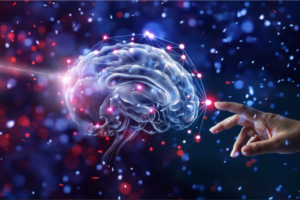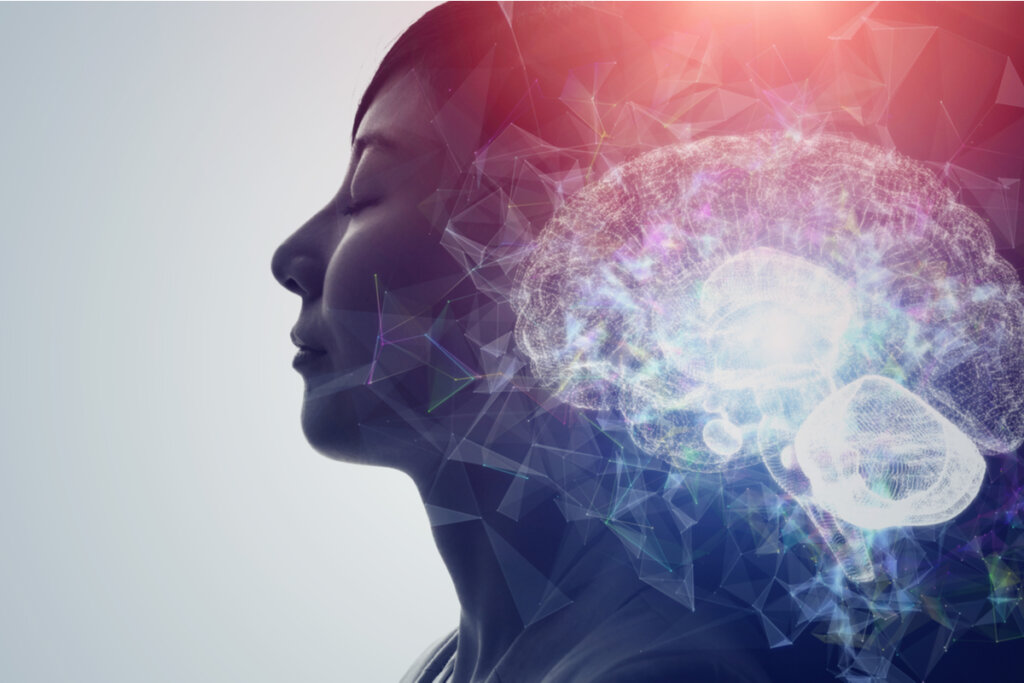Primordial or Instinctive Emotions: The Origins of Consciousness


Written and verified by the psychologist Valeria Sabater
Much of who we are today is due to our primordial or instinctive emotions. We refer to dimensions such as fear. Or, the craving that accompanies hunger or thirst and the despair associated with pain. In fact, these atavistic and basic states could be the origin and the root of the wide range of emotions and feelings that we experience now.
Neuroscientists point out that these original emotions formed the basis of our instincts. They’re components that promote action, drive the need to satisfy appetites, or escape from threat. In some way, these processes acted almost like the substrate that allowed us to go from the wild to the human, from the essential to the complex.
This topic is incredibly interesting. That’s because it allows us to understand how emotional organization systems were key to building the sculpture of the brain during ontogeny. Indeed, it wasn’t just our bodies that evolved. Emotional systems also became much more sophisticated in this evolution. This was decisive for our cognitive development.
After all, as humans, we’re not what we think, we’re what we feel.
Experts disagree on how consciousness originated. Some believe it arose after the development of cognitive processes. For others, consciousness was the result of emotions.

What are primordial or instinctive emotions?
The theory of primordial emotions was popularized in 2006 following an interesting publication entitled: The Primordial Emotions: The Dawning of Consciousness. Its author is Derek Denton, an important physiologist, and professor at the University of Melbourne (Australia). His theory starts from the idea that instinctual emotions constitute the basis of our consciousness.
To understand this proposal we must visualize for a moment the first stages of our evolution. At that time, we limited ourselves to acting by mere reflexes aimed at promoting homeostasis. In other words, if we were cold, we sought sources of heat. If we felt hungry or thirsty, we went in search of food and drink.
Those states were mere dimensions governed by arousal and a simple, but desperate desire to act. However, as our brains evolved, these emotions, as Dr. Denton et al explained in a study, became more complex. This was thanks to the development of our limbic, paralimbic, and cerebral insula areas.
As we evolved, our emotions were no longer merely instinctive and primordial. Furthermore, our goal was no longer simply to survive. We also wanted to socialize, strengthen ties, set goals, get excited, and feel hopeful. Little by little, we also shaped our consciousness.
The difference between primordial and instinctive emotions
You might ask if there’s a difference between primordial emotions and basic emotions. The answer is yes. Furthermore, it’s a difference that needs clarifying.
When we speak of these primal or instinctive psychophysical states, we refer to processes that are driven by extremely old regions of the lower brain. For example, the hypothalamus and the midbrain.
Dr. Derek Denton concluded that the primary emotions were hunger, thirst, pain, and fear. They were basic, ancient, and essential states for survival. Later, much more complex psychophysical realities began to emerge.
In fact, gradually, the so-called basic emotions developed. They commenced with the original ones, such as love, sadness, anger, and even disgust.
With the development of the cerebral cortex, more complex processes such as perception, imagination, and judgment appeared. At the same time, and during this neurological evolution, our emotions also became more sophisticated and less instinctive.

Consciousness and emotions, an intimate relationship
In the world of neuroscience, there exists an unsolved mystery. It’s the understanding of the origin of consciousness. By this, we mean the capacity of us, as humans to reflect on ourselves and the reality that surrounds us. Many scientists believe that this dimension arose as the result of our cognitive evolution, of our intelligence.
However, some experts have put forward another proposal. They suggest that we’re not what we think, we’re what we feel. In fact. we’re our emotions. After all, we’re emotional beings who reason. Therefore, this could be the foundation of our consciousness.
This is the hypothesis that Dr. Denton considers, defends, and exposes in his works. He believes that the primordial emotions could be the cornerstone of the evolutionary origin of consciousness. In fact, through neuroimaging, we can see how those deep regions of the basal brain are activated by primary states such as hunger, thirst, or fear.
According to this interesting approach, the progressive development of our brain made our emotions evolve alongside it. When emotional states became more sophisticated, our consciousness also arose. With it, human behavior became more skillful, more complex, and shaped who we are today.
As you can see, this is an interesting and decisive topic. No doubt scientists will continue to delve deeper into the subject in the coming years.
All cited sources were thoroughly reviewed by our team to ensure their quality, reliability, currency, and validity. The bibliography of this article was considered reliable and of academic or scientific accuracy.
- Denton, Derek (2006) The Primordial Emotions: The Dawning of Consciousness. Oxford University Press
- Toronchuk, J. A., & Ellis, G. F. (2013). Affective neuronal selection: the nature of the primordial emotion systems. Frontiers in psychology, 3, 589. https://doi.org/10.3389/fpsyg.2012.00589
This text is provided for informational purposes only and does not replace consultation with a professional. If in doubt, consult your specialist.








